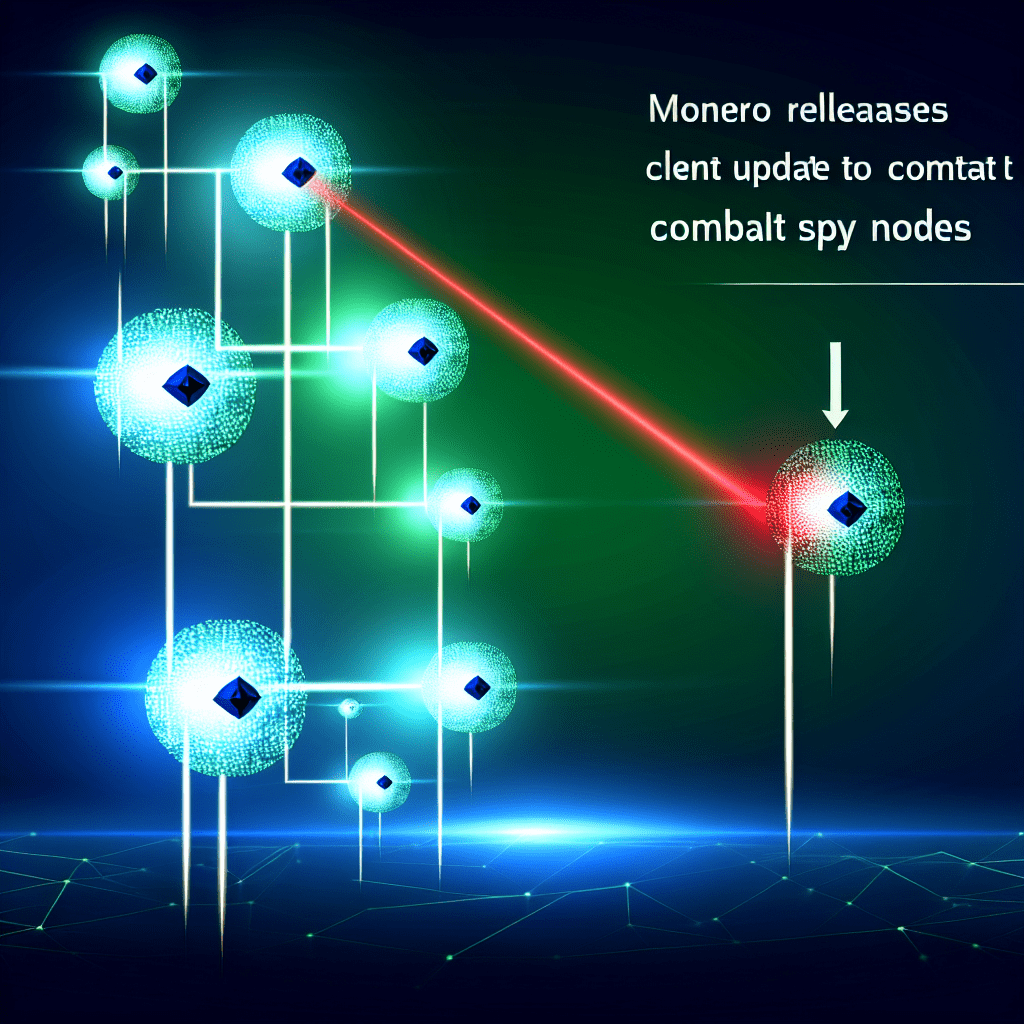The privacy-focused blockchain Monero has introduced a new client update aimed at enhancing user security against “spy nodes” in the network.
The “Fluorine Fermi” software update was announced on X this Thursday, with the team declaring it “a highly recommended release.”
The phrase “spy nodes” is commonly used within the Monero community to denote malicious nodes, groups of nodes, or botnets that can potentially associate IP addresses with transactions on the network.
The update emphasizes an enhanced peer selection algorithm aimed at preventing connections to large subnet IP addresses typically associated with “spy nodes.” Users are encouraged to connect to nodes considered safer. Additional reliability and stability improvements are also included.
Monero privacy threats
Fluorine Fermi offers another means for users to safeguard their privacy.
Since spy nodes pose a threat to user privacy, contrasting with the core objectives of the project, the community has strived to develop solutions, establish safety practices, promote self-node management, and use software designed to mitigate the risk from malicious nodes on Monero.
Related: Privacy is ‘constant battle’ between blockchain stakeholders and state
One proposal, suggested by the Monero Research Lab in late 2024, involves allowing node operators to compile a ban list of suspected spy node IP addresses to prevent connections to them.
Nevertheless, this approach is not regarded as foolproof or fully sustainable, as malicious node operators might simply create new spy IP addresses as needed.
An additional resource the community advocates is Dandelion++, software designed to hinder malicious actors from linking IP addresses to transactions.
Concerns regarding Monero’s privacy issues were further highlighted by a leaked Chainalysis video released in September 2024.
Cointelegraph obtained the video from an anonymous source, which alleged that Chainalysis successfully traced transactions back to 2021 using its own “malicious” Monero nodes.
Headline: ‘Help! My robot vac is stealing my Bitcoin’: When smart devices attack

